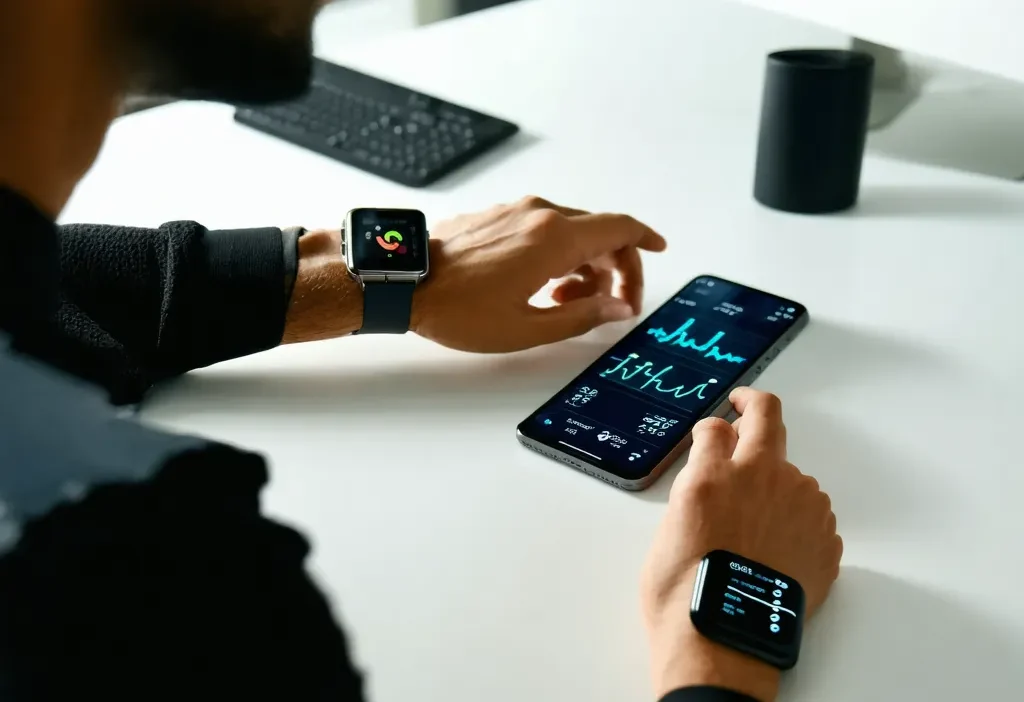How Wearable Technology Is Redefining Personalized Healthcare
In the ever-evolving landscape of healthcare, wearable technology stands out as a groundbreaking innovation that is reshaping how we monitor and manage our health. Gone are the days when fitness trackers were merely gadgets for counting steps or measuring heart rates. Today’s wearables are sophisticated devices capable of collecting an array of vital data, from blood oxygen levels to sleep patterns. This article explores the transformative role of wearable technology in personalized healthcare and its potential to revolutionize the industry.
The Evolution of Wearable Tech
Wearable technology has come a long way since the basic pedometers of yesteryears. Modern devices now boast features like:
- Real-time health monitoring for conditions such as diabetes and hypertension
- AI-powered insights to predict potential health risks before they become critical
- Sleep quality analysis with detailed breakdowns of REM cycles
- Stress level tracking through heart rate variability and respiratory patterns
These advancements are not just incremental improvements; they represent a paradigm shift in how individuals approach their health. By providing continuous, personalized data, wearables empower users to take proactive steps towards improving their well-being.
The Role of AI in Enhancing Wearable Tech
At the heart of this revolution is artificial intelligence (AI), which processes the vast amounts of data collected by wearables. Machine learning algorithms analyze patterns and trends, offering users actionable insights tailored to their unique health profiles. For instance:
- A diabetic patient can receive alerts about fluctuating blood sugar levels, along with recommendations for dietary adjustments.
- An athlete can optimize training regimens based on real-time feedback about recovery periods and performance metrics.
AI-driven wearables are also paving the way for early disease detection. By identifying subtle changes in physiological data, these devices can signal potential health issues before symptoms become noticeable. This capability is particularly valuable for managing chronic conditions and preventing complications.
The Future of Wearable Technology
Looking ahead, the integration of 5G connectivity promises to further enhance the capabilities of wearable devices. With faster data transfer rates, wearables will be able to provide even more accurate and timely health insights. Additionally, advancements in nanotechnology could lead to smaller, more inconspicuous devices that offer greater functionality.
Another exciting development is the potential for wearables to play a key role in telemedicine. By providing healthcare providers with real-time patient data, these devices can facilitate remote consultations and monitoring, making quality care more accessible, especially in underserved areas.
‘The fusion of wearable technology and AI represents a significant leap forward in personalized medicine,’ says Dr. Emily Carter, a leading expert in digital health technologies. ‘These innovations are not just tools for tracking fitness; they are vital components of a comprehensive healthcare ecosystem.’
Challenges and Considerations
While the future of wearable technology is undeniably bright, there are challenges that need to be addressed:
- Data privacy concerns: Ensuring the secure storage and transmission of sensitive health information is paramount.
- Interoperability issues: Devices from different manufacturers often operate on separate platforms, limiting their ability to share data seamlessly.
Addressing these challenges will require collaboration between tech companies, healthcare providers, and policymakers. By working together, they can create a cohesive ecosystem that maximizes the benefits of wearable technology while safeguarding user privacy and security.
The Road Ahead: A Healthier Future for All
As wearable technology continues to evolve, its impact on personalized healthcare will only grow. These devices have the potential to democratize access to quality health monitoring, enabling individuals from all walks of life to take charge of their well-being. Whether you’re an athlete striving for peak performance or someone managing a chronic condition, wearables offer unprecedented opportunities to live healthier, more informed lives.
The future is undeniably connected—both in terms of technology and health. By embracing the innovations offered by wearable devices, we can pave the way for a new era of healthcare that is as personalized as it is effective.





